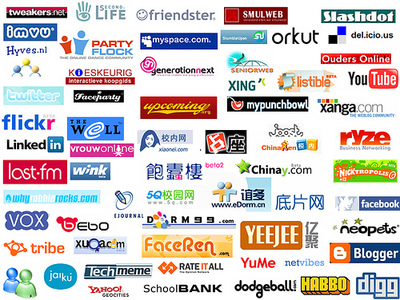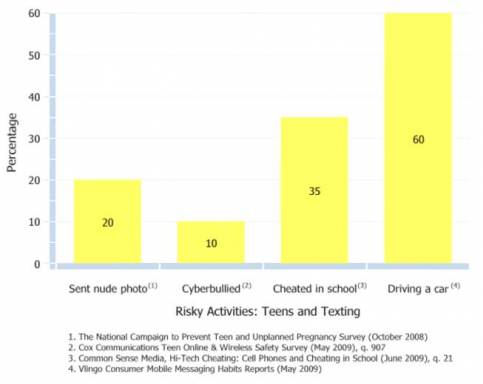Every site has a brand in the collective opinion of your teen's peers – ask and your kids can most likely tell you which social network is for professionals, older people, or younger teens. What has your kids safety to do with that? (They can probably also name the social networks where they are most likely to be approached by shady characters, scam artists, and pedophiles.) And when it comes to what's hot or what's popular, social networks are constantly evolving.
When social networking seriously appeared on the market in 2003, Friendster was the emergent king. It was one of the first of its kind to really take root, and became extremely popular. Everyone who was anyone was on Friendster.





 Kids today keep track of their homework assignments, their schedules, and their lives in general on social networks. Just one more reason for parents to keep an eye on their teen's Facebook and MySpace pages.
Kids today keep track of their homework assignments, their schedules, and their lives in general on social networks. Just one more reason for parents to keep an eye on their teen's Facebook and MySpace pages. This past April was National Child Abuse Prevention Month. The month was dedicated to raising awareness about child abuse and, more importantly, to preventing it. The Internet adds a new dimension to child abuse, as children of all ages can become victims of
This past April was National Child Abuse Prevention Month. The month was dedicated to raising awareness about child abuse and, more importantly, to preventing it. The Internet adds a new dimension to child abuse, as children of all ages can become victims of
 Older studies reported that the age of the average online gamer was somewhere in the 40s. But now, the age of the average gamer is 32. What does this mean? It means that tweens are entering the mix – and they’re most likely yours.
Older studies reported that the age of the average online gamer was somewhere in the 40s. But now, the age of the average gamer is 32. What does this mean? It means that tweens are entering the mix – and they’re most likely yours. If you think that only kids that are the victim of cyberbullying, think again.
If you think that only kids that are the victim of cyberbullying, think again.  You don’t need an expert to tell you that you lived a different childhood than your kids do. You remember when you had to get up and turn the dial on the TV to change channels; your teen can’t understand how a world without Facebook or MySpace would even function.
You don’t need an expert to tell you that you lived a different childhood than your kids do. You remember when you had to get up and turn the dial on the TV to change channels; your teen can’t understand how a world without Facebook or MySpace would even function.
 YouTube provides a completely free platform for uploading, sharing, and viewing video content on any subject. You can laugh over a parody of Twilight, see your nephew take his first steps, learn how to seal the grout on your tile floor, or prove to your kids that an octopus can, in fact, fit through an opening the size of a quarter. Here’s what you need to know about using this
YouTube provides a completely free platform for uploading, sharing, and viewing video content on any subject. You can laugh over a parody of Twilight, see your nephew take his first steps, learn how to seal the grout on your tile floor, or prove to your kids that an octopus can, in fact, fit through an opening the size of a quarter. Here’s what you need to know about using this  Alexis Pilkington. Robyn Nixon. Phoebe Prince. These teenagers left their marks on the world by taking their own lives in the wake of relentless cyberbullying.
Alexis Pilkington. Robyn Nixon. Phoebe Prince. These teenagers left their marks on the world by taking their own lives in the wake of relentless cyberbullying. As the word
As the word  Sexting is quickly becoming a rampant problem
Sexting is quickly becoming a rampant problem Would your teen start to get the shakes after 15 minutes if you took away the computer and all their Bluetooth-enabled devices? If so, it may be time to worry about their online usage’s impact on their mental health.
Would your teen start to get the shakes after 15 minutes if you took away the computer and all their Bluetooth-enabled devices? If so, it may be time to worry about their online usage’s impact on their mental health. I’m pleased to announce that MySpace has now been added to our service via the FamilyConnect platform. This new feature enables you to better educate, engage with and protect your child when they use the
I’m pleased to announce that MySpace has now been added to our service via the FamilyConnect platform. This new feature enables you to better educate, engage with and protect your child when they use the 
 So you’ve had the Internet safety conversation with your child: no giving out personal information online, no talking to strangers in chat rooms, and no sending elicit photos or texts. What next?
So you’ve had the Internet safety conversation with your child: no giving out personal information online, no talking to strangers in chat rooms, and no sending elicit photos or texts. What next? Photo sharing websites like Flickr, PhotoBucket, and Shutterfly are becoming extremely popular. Signing up for a free account only takes a few minutes, and then you can upload all your family pictures, add captions, and share them with friends and relatives. Photo sharing sites are a great way to stay in touch with out-of-state relatives or catch up with friends you don’t see very often. And let’s face it – pictures of your own kid are too cute not to showcase. But many parents are using photo sharing sites much too freely, and it may be compromising the
Photo sharing websites like Flickr, PhotoBucket, and Shutterfly are becoming extremely popular. Signing up for a free account only takes a few minutes, and then you can upload all your family pictures, add captions, and share them with friends and relatives. Photo sharing sites are a great way to stay in touch with out-of-state relatives or catch up with friends you don’t see very often. And let’s face it – pictures of your own kid are too cute not to showcase. But many parents are using photo sharing sites much too freely, and it may be compromising the  Last month Apple finally made the move to ban sexy applications from the company's popular App Store. Female customers and parents can claim a big victory here because it was their loud and justifiable chorus of complaints that led to the change.
Last month Apple finally made the move to ban sexy applications from the company's popular App Store. Female customers and parents can claim a big victory here because it was their loud and justifiable chorus of complaints that led to the change.